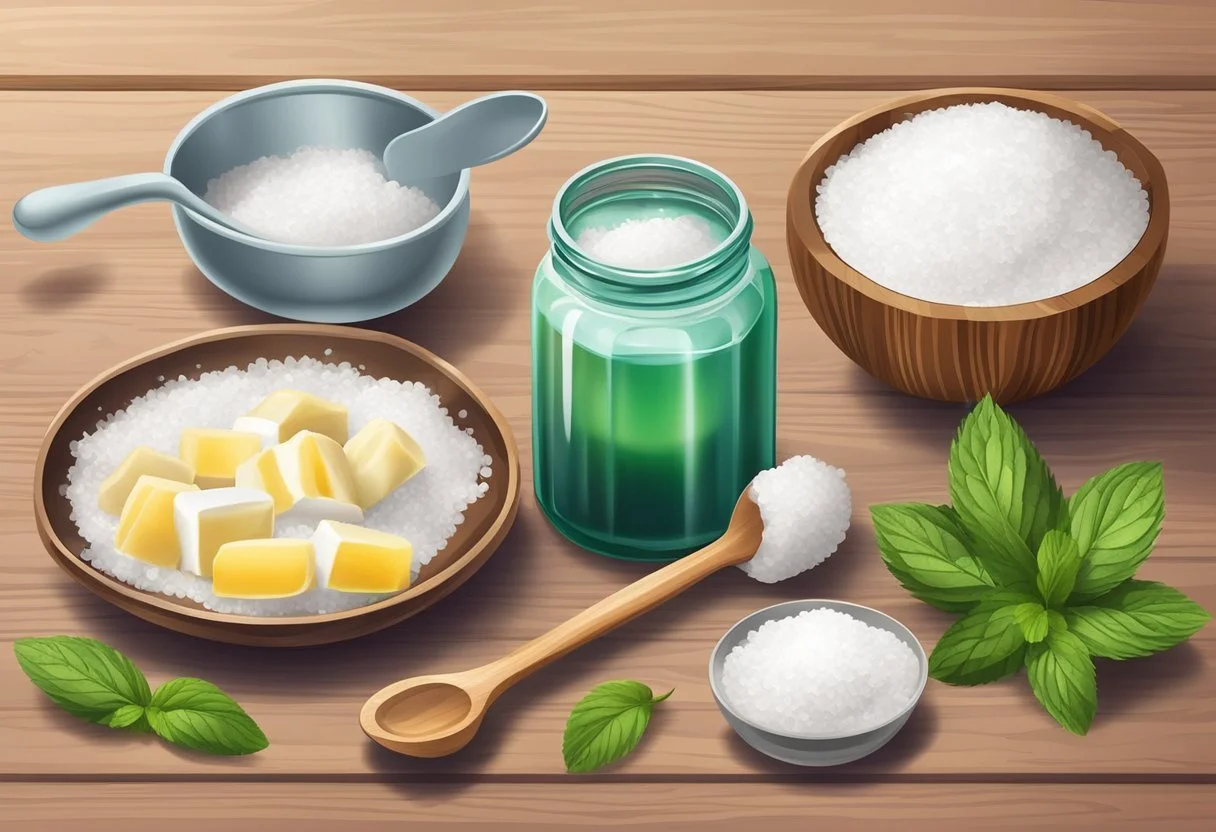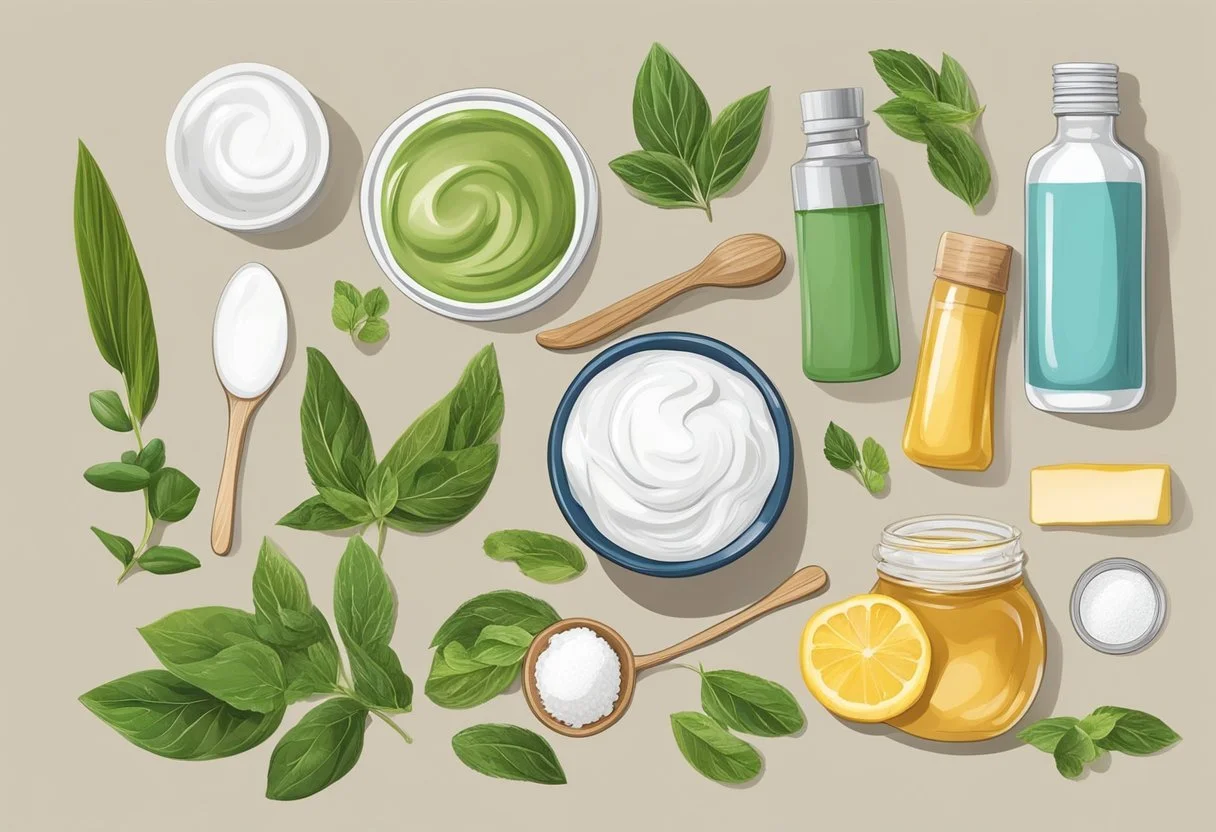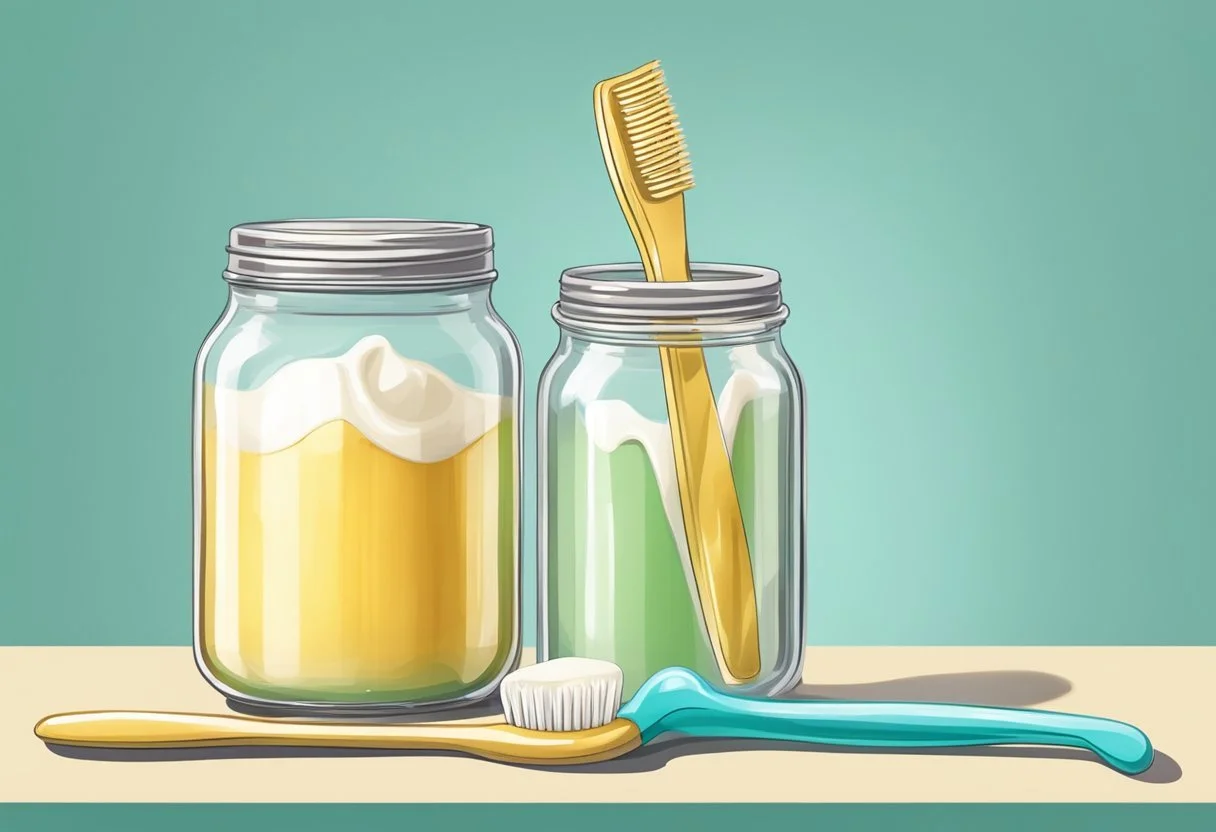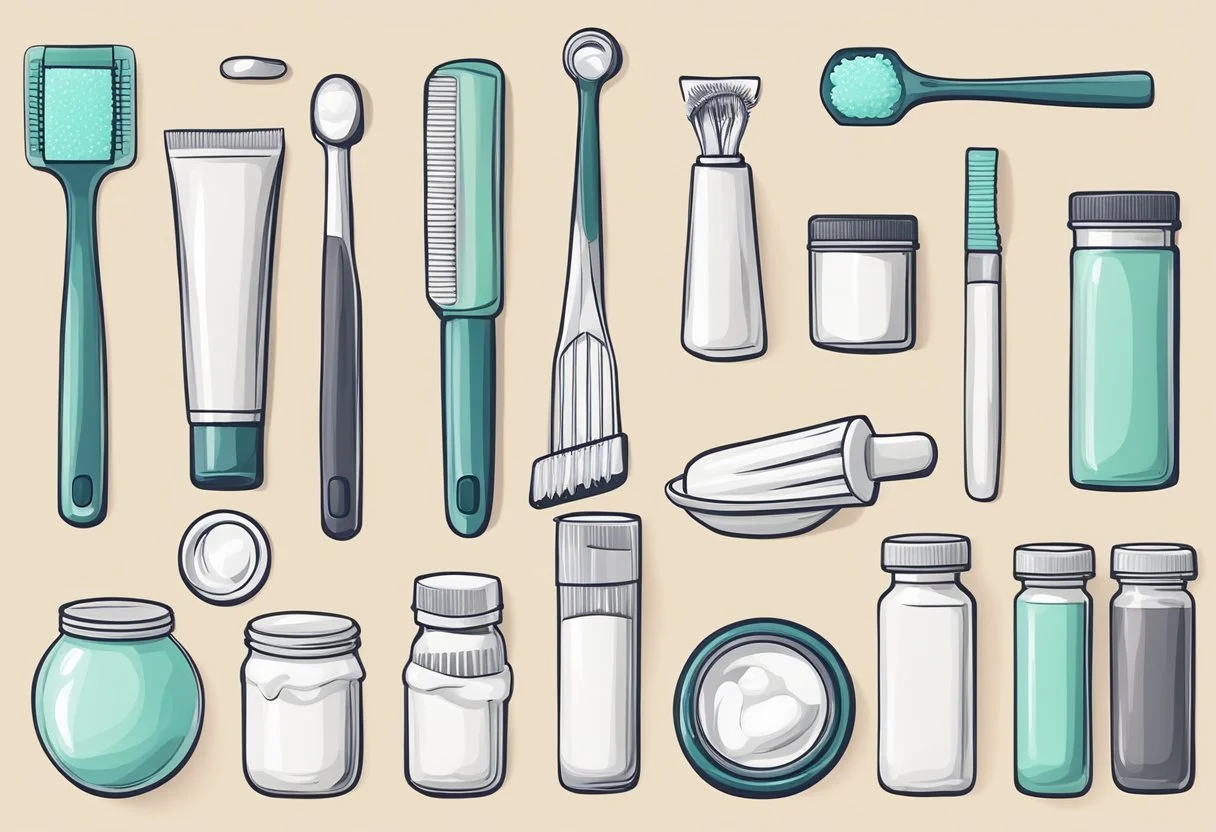How to Make Natural Homemade Toothpaste?
A Simple and Effective Guide
This article is part of our series on Natural Health
Discover > Natural Health > How to Make Natural Homemade Toothpaste?
Many people are becoming more conscious of the products they use on a daily basis, especially when it comes to personal care items. One area of concern is oral hygiene, specifically toothpaste, as many commercial options contain ingredients that may not be beneficial to long-term health. Making natural homemade toothpaste can be a great solution to address these concerns, as well as providing an environmentally friendly alternative.
Creating natural homemade toothpaste allows for customization, ensuring that the ingredients align with personal preferences and any specific needs. There are a variety of materials and recipes available, often using simple and easy-to-find components. Not only can this reduce waste from packaging, but it can also offer potential cost savings compared to store-bought options.
In the following sections, we will explore the benefits of natural homemade toothpaste, the essential ingredients typically used, and some recipes to help you craft your own toothpaste at home. By taking control of the ingredients in your personal care products, you can take a step towards a healthier, eco-friendlier lifestyle.
Why Choose Natural Homemade Toothpaste
Harmful Ingredients in Commercial Toothpaste
Commercial toothpaste often contains harmful ingredients such as triclosan, sodium lauryl sulfate, artificial colors, and artificial sweeteners. Triclosan is used as an antibacterial agent and was once widely used in antibacterial soaps. However, it has raised concerns due to its potential health and environmental impact. Sodium lauryl sulfate is a foaming agent that can cause mouth ulcers and may lead to an upset oral microbiome. Artificial colors and sweeteners are added for aesthetic purposes but may cause allergic reactions in some users.
Benefits of Natural Toothpaste
Opting for natural homemade toothpaste offers several benefits for dental health. Natural toothpaste generally does not contain the harmful ingredients found in commercial toothpaste, which reduces the risk of oral health issues such as mouth ulcers. Additionally, homemade toothpaste may promote oral health by providing essential minerals that help maintain tooth enamel, support gum health, and reduce bad breath.
Understanding Relative Dentin Abrasivity
Another reason to choose natural homemade toothpaste is to control the relative dentin abrasivity (RDA) levels. RDA is a measurement of the abrasiveness of toothpaste against tooth enamel and dentin. High RDA levels can cause damage to enamel and gums, which may lead to long-term dental issues. By creating natural toothpaste at home, you can manage the abrasiveness of your toothpaste, ensuring a gentle yet effective formula for maintaining oral health. This is an advantage over commercial toothpaste, as users can be unsure of the abrasiveness of the toothpaste they purchase.
In conclusion, natural homemade toothpaste offers a safe and effective alternative to commercial toothpaste for maintaining oral health without the risk of harmful ingredients or excessive abrasiveness.
Essential Ingredients to Make Homemade Toothpaste
Base Ingredients
To create natural homemade toothpaste, there are a few essential base ingredients required. They provide the necessary texture and cleaning properties. Common base ingredients include:
Baking soda: (how long does baking soda last?) Known for its cleaning properties, it helps in removing stains and whitening teeth.
Coconut oil: This is a popular ingredient in toothpaste because it has antimicrobial properties and can help reduce plaque and inflammation.
Glycerin: This ingredient helps to provide a smooth texture, but some people prefer to avoid it due to concerns about its potential effect on tooth enamel.
Bentonite clay: Rich in minerals, bentonite clay helps to remineralize the teeth and maintain the pH balance in the mouth.
Additional Ingredients
To enhance the benefits of homemade toothpaste and ensure a pleasant experience, some ingredients can be added to the base mixture, such as:
Xylitol: A natural sugar substitute that not only improves the taste but also helps in fighting cavities.
Stevia powder: Another natural sweetener, stevia is often used in homemade toothpaste due to its zero-calorie content and potential oral health benefits.
Charcoal: It can be added to toothpaste to help remove stains and whiten teeth.
Natural Flavor Enhancers
For a pleasant taste and aroma, essential oils can be added to homemade toothpaste. Some popular choices include:
Peppermint essential oil: Known for its fresh and invigorating taste; it also has antimicrobial properties.
Cinnamon oil: This warm spice can give toothpaste a pleasant flavor and also has antimicrobial benefits.
Clove oil: Loved for its soothing properties, clove oil is often used in toothpaste to alleviate tooth sensitivity and help fight cavities.
Myrrh essential oil: With a long history as a natural remedy, myrrh can help with gum inflammation and offer antimicrobial benefits.
Preserving Your Homemade Toothpaste
Proper storage and preservation of your homemade toothpaste can extend its shelf life and maintain its effectiveness. It is recommended to store the toothpaste in a clean, airtight glass jar. The shelf life of homemade toothpaste varies depending on the ingredients used, so it is always a good idea to consult with a doctor or dental professional to ensure the safety and efficacy of your toothpaste.
Making Your Own Toothpaste at Home
Homemade Toothpaste Recipe
Making your own natural homemade toothpaste is simple and effective. Start by mixing 2 tablespoons of coconut oil with 2 tablespoons of baking soda until you achieve a smooth texture. Coconut oil has antibacterial properties and helps to maintain healthy gums, while baking soda is a natural abrasive that removes plaque and whitens teeth.
For extra oral health benefits, add 1/2 teaspoon of sea salt (how long does sea salt last?) to the mixture. Sea salt contains essential minerals that support strong teeth enamel.
Making Homemade Tooth Powder
An alternative to traditional toothpaste is homemade tooth powder. This powder can be made by combining the following ingredients:
4 tablespoons bentonite clay
2 teaspoons baking soda
1 teaspoon sea salt
1 teaspoon activated charcoal (optional)
Mix these ingredients together until they are evenly distributed. Store the tooth powder in an airtight container and use a small amount on your toothbrush as needed.
Adding Flavor to Your Homemade Toothpaste
To customize the taste of your DIY toothpaste, add a few drops of peppermint or cinnamon essential oil. Peppermint oil (how long does peppermint oil last?) not only provides a refreshing taste but also fights bad breath-causing bacteria. Cinnamon oil has antibacterial properties and lends a warm, spicy flavor to the toothpaste.
Experiment with various essential oil ratios to find the perfect flavor intensity that suits your personal preference. Always store your homemade toothpaste or tooth powder in a clean container and enjoy the benefits of a natural, chemical-free oral care routine.
Using Your Homemade Toothpaste Effectively
Proper Brushing Techniques
To maintain optimal oral health, it's crucial to use proper brushing techniques. First, apply a pea-sized amount of your natural homemade toothpaste onto a soft-bristled toothbrush. Then, hold the toothbrush at a 45-degree angle against your teeth and brush gently in short strokes, cleaning each tooth's surface. Remember to clean your tongue gently to help eliminate bad breath. It is recommended to brush your teeth for at least two minutes, twice a day.
Complementary Oral Care Practices
In addition to brushing with your homemade toothpaste, other natural oral care practices can further support your oral hygiene. These practices include:
Flossing daily: This helps to remove plaque and food particles from between your teeth and under the gumline.
Oil pulling: Gently swish a tablespoon of coconut, sesame, or sunflower oil for around 15-20 minutes daily. This practice can help in reducing harmful bacteria in the mouth.
Using a tongue scraper: Scrape your tongue gently from back to front to remove bacteria build-up.
Using a natural mouthwash: Opt for alcohol-free, natural mouthwashes, such as those containing herbal extracts and essential oils.
When to Consult a Dentist
While using your homemade toothpaste effectively is vital for maintaining your oral health, it's also essential to visit a dentist regularly for professional cleanings and checkups. Keep an eye out for any persistent issues such as bleeding gums, toothaches, or bad breath, as these may be signs of more severe problems requiring professional care. It's crucial to consult with your dentist if you have concerns or questions about the effectiveness of your homemade toothpaste and its impact on your oral health.
Disclaimer: Homemade toothpaste may not have undergone rigorous testing by organizations like the ADA or FDA. It is essential to be cautious and consult with a dentist to ensure it meets your oral health requirements.
Additional Considerations
Effectiveness of Homemade Toothpaste
Homemade toothpaste can be an effective option for maintaining tooth care, as many natural ingredients, such as baking soda, coconut oil, and essential oils, are known to possess antibacterial properties. These ingredients can help prevent gingivitis and support tooth enamel health. However, it is essential to note that homemade toothpaste may not offer the same level of whitening as store-bought whitening toothpaste. It is recommended to conduct thorough research on the ingredients and their benefits before preparing homemade toothpaste.
Safety for Young Children
When it comes to young children, caution should be exercised while using homemade toothpaste. Many recipes suggest using fluoride, which is beneficial for tooth health in small quantities but may pose risks upon consumption in large amounts. Parents should carefully monitor and control the amount of fluoride in the toothpaste they prepare and supervise their young children's tooth brushing to prevent accidental ingestion.
Natural Toothpaste Brands and Alternatives
For those who want to avoid homemade toothpaste but still prioritize natural ingredients, there are various store-bought alternatives available. Brands like Earthpaste and Wellness Mama offer all-natural toothpaste options without added chemicals. These natural toothpaste brands typically use a combination of filtered water, essential oils, and other organic ingredients, such as myrrh and sage, to provide antiseptic and cleaning properties.
Exploring Other Homemade Products
Besides toothpaste, there are many other homemade products one can explore for a more natural approach to personal care. For example, people can make their own mouthwash using filtered water, essential oils, and natural salts. Similarly, natural ingredients like coconut oil and baking soda can be used to create deodorant, shampoo, and lotion. By experimenting with natural ingredients and researching their benefits, individuals can create a personalized care routine that is both eco-friendly and beneficial to their health.
Debunking Common Health Myths
There are many health myths circulating in the media and online, and it can be difficult to separate fact from fiction. One common question is whether organic tampons are better than conventional tampons. While organic tampons may be free from synthetic chemicals, there is no scientific evidence to suggest that they are safer or more effective than conventional tampons. Similarly, there is a common belief that yoga can release toxins from the body, but this is not supported by scientific evidence. While yoga can promote relaxation and reduce stress, it does not have the ability to release toxins from the body.
Another common myth is that SlimFast can make you poop more frequently. While SlimFast may contain ingredients like fiber that can promote regularity, there is no evidence to suggest that it can cause excessive bowel movements. Finally, many people wonder whether love handles are bad for their health. While excess belly fat can increase the risk of health problems like heart disease and diabetes, love handles themselves are not inherently bad for your health.
By debunking these common health myths, individuals can make informed decisions about their health and wellness. It's important to seek out reliable sources of information and consult with a healthcare professional before making any significant changes to your diet or lifestyle.
#baking soda toothpaste #toothpaste with baking soda #tea tree oil #homemade toothpaste recipes #sensitive teeth #conventional toothpaste #natural toothpastes






